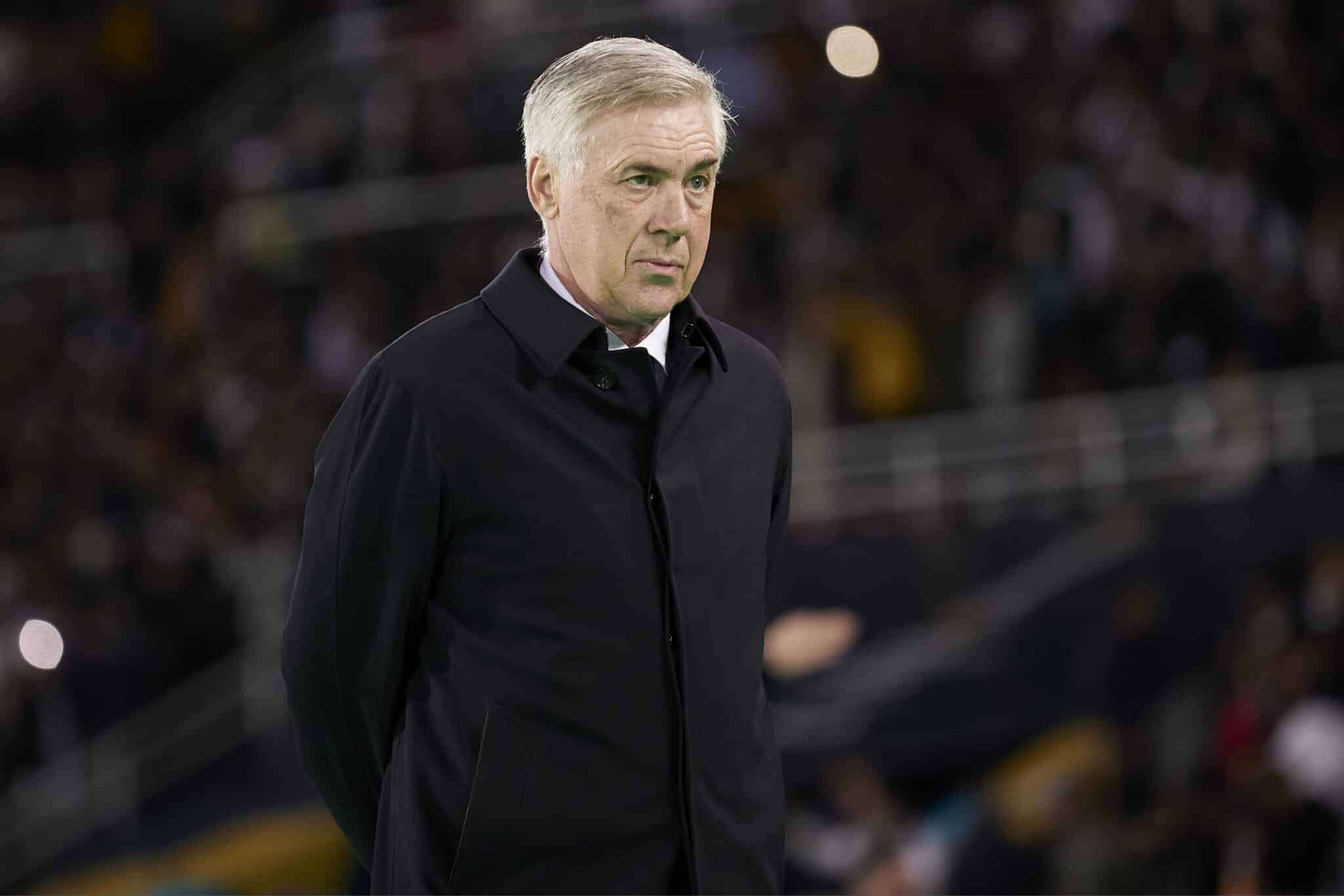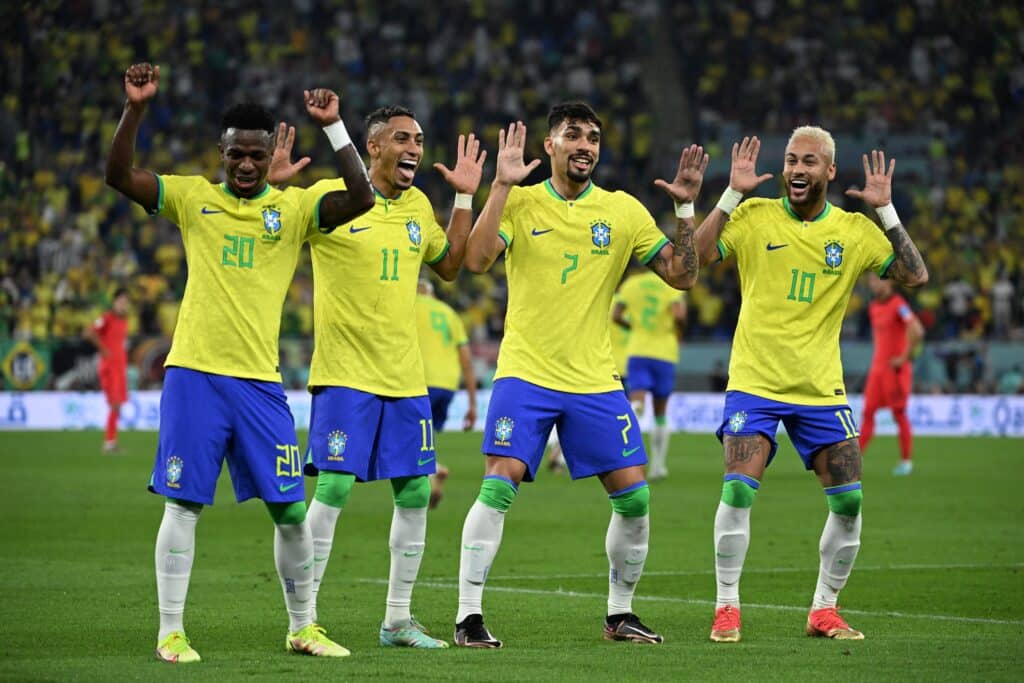> BrazilCarlo AncelottiSoccer
> BrazilCarlo AncelottiSoccer

Carlo Ancelotti, one of the most decorated managers in world football, has been appointed as the new head coach of the Brazil national team, taking on the immense responsibility of leading one of the most prestigious footballing nations to glory. Ancelotti’s arrival is seen as a significant step in the evolution of Brazil’s footballing future, and it presents him with both exciting opportunities and daunting challenges.
Ancelotti’s managerial career speaks for itself. With stints at some of Europe’s biggest clubs, including AC Milan, Chelsea, Paris Saint-Germain, and Real Madrid, the Italian tactician has won numerous league titles, Champions League trophies, and domestic cups. His calm demeanor, tactical intelligence, and ability to manage star players have made him a sought-after figure in football management.
However, the challenge of managing Brazil’s national team is unlike any club job. While Ancelotti is used to managing high-profile clubs with superstar players, his role with Brazil will require him to adapt to a different set of pressures and expectations. In Brazil, success is measured by World Cup victories and Copa América triumphs, with the weight of the country’s rich footballing history resting on the manager’s shoulders.
Brazil has long been regarded as the spiritual home of football. The national team has won a record five World Cups, and the expectations surrounding the team’s performance are sky-high. The Brazilian fans, known for their passion and love for the game, demand success, and failure is not an option. This makes Ancelotti’s appointment both a blessing and a heavy burden.
The Brazil national team has experienced some turbulence in recent years. After failing to capture the World Cup in 2018, the squad’s journey to Qatar in 2022 was marred by inconsistency. The team’s failure to win the Copa América in 2021 only added to the scrutiny on the Brazilian Football Confederation (CBF) and the previous managerial regimes. Ancelotti’s task is not just to win titles, but to restore the team’s identity as a footballing powerhouse.

Ancelotti is known for his tactical flexibility. Throughout his career, he has adapted to various playing styles, whether it be attacking, possession-based football, or pragmatic, counter-attacking strategies. One of his most notable strengths is his ability to get the best out of star players while maintaining a balanced and functional team structure. This is vital for Brazil, where individual flair and creativity have always been integral to their success, but a cohesive team structure is required to achieve consistency.
With Brazil boasting a wealth of talent, including Neymar, Vinícius Júnior, Casemiro, and many others, Ancelotti’s challenge will be to blend the unique skills of these players into a well-rounded system. His ability to manage big personalities—something he has done throughout his career—will be crucial in Brazil, where the pressure from media, fans, and even the players themselves is intense.
The key question is how Ancelotti will manage the attacking freedom Brazil is famous for, while ensuring the defensive stability necessary to win international tournaments. While Ancelotti has generally favored a balanced approach with flexibility, the Brazilian style of play is synonymous with attacking flair, something he will need to honor while instilling a more solid defensive structure.
Unlike club football, where a manager has access to his players year-round, Ancelotti will have limited time to work with his squad during international breaks. This can make team-building, tactics, and overall cohesion more challenging, especially with a team as large as Brazil’s. The need for effective player selection, managing fatigue, and preparing for high-stakes matches with minimal training time will test Ancelotti’s adaptability.
Brazil’s vast footballing infrastructure and the availability of a large pool of talent offer a unique challenge in terms of selecting the right players and managing them over the course of the season. Ancelotti will have to deal with the complexities of managing a national team, from integrating new players to ensuring harmony and unity within the squad.
Ancelotti’s primary objective will be to guide Brazil to the 2026 World Cup. The upcoming tournament, to be co-hosted by the United States, Canada, and Mexico, will be an opportunity for Brazil to reclaim its rightful place at the top of global football. However, the road to qualification and eventual triumph will not be easy. Brazil will face stiff competition from teams like Argentina, France, and Germany, all of whom will have their sights set on the prestigious trophy.
Ancelotti’s experience in handling high-pressure situations in global tournaments will be invaluable. He has managed teams in several World Cups and Champions League finals, and his calm approach in tense moments could provide the stability Brazil needs. Ancelotti has also previously led Real Madrid to the Champions League title in 2014, demonstrating his ability to manage elite teams on the world stage.
Carlo Ancelotti’s appointment as Brazil’s head coach is undoubtedly one of the most significant managerial moves in international football. With his vast experience and calm demeanor, he brings a wealth of knowledge to a team that has been in search of direction. While the challenge of managing Brazil comes with immense pressure, Ancelotti’s ability to blend tactical intelligence with player management and his adaptability in various competitions will be crucial in meeting the high expectations placed upon him.
Brazilian fans and pundits alike will be watching closely to see how Ancelotti’s style and philosophy translate to international football. If he can find the right balance between Brazil’s attacking traditions and the demands of modern international football, he may just restore Brazil to the pinnacle of world football once again.